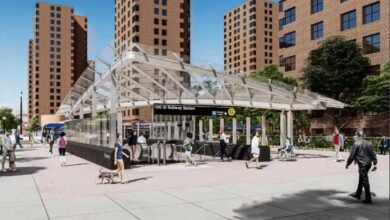Op-Ed | NYC has tens of thousands of ECE seats for families – let’s make sure we fill every single one


Working families with young kids face a common challenge that is critical to their success and keeping them in the five boroughs: finding safe, affordable, high-quality childcare.
New York City’s free early childhood education (ECE) programs of 3-K and Pre-K for our youngest New Yorkers can be lifelines for working parents, but they need to be accessible and effective. Amidst an affordability crisis, when the cost of housing and food is higher than ever, a 3-K or Pre-K seat can be a lifesaver for working families.
In recent years, this has not been the case, with thousands of budgeted ECE seats left vacant and others not meeting their needs. The City Council recognized these deficiencies and has prioritized taking leadership to solve the challenges within the ECE system, so it is stronger and better serves our communities.
We have repeatedly proposed fixes through dedicated funding in our budget negotiations with the mayor’s administration and smart policy changes.
In the last budget cycle for Fiscal Year 2025 , we secured the establishment of an intergovernmental working group to advance necessary changes, as well as $293 million to add new 3-K and preschool special education seats where needed, convert thousands of seats to be full-day, full year that better accommodate working parents, and reinstate dedicated marketing and outreach efforts. The converted seats and increased outreach efforts were proposals of the Council that were subsequently realized with funding in the final budget.
Every year, our goal is to have every single seat filled in every district from Woodlawn to Far Rockaway, and for every family who wants a seat to receive an offer. Each seat that is unfilled represents a child the City could have given an opportunity to start their educational journey through a high-quality program, and one more working family that could have benefitted from this critical lifeline.
To realistically achieve this goal, we need to ensure that families have the information and support they need to apply for a seat. We cannot expect parents, who are already juggling so many different priorities and fighting to make ends meet, to suddenly understand the ins and outs of the education system without support. As a city government, we must meet families where they are.
That requires the City to be proactively out in neighborhoods across the five boroughs to ensure parents know about the programs available to their children – whether that means showing up at houses of worship, grocery stores, salons or subway stations. Working families aren’t just struggling, they are leaving. We must do everything in our power to ensure working families with young children are aware of the options, programs, and opportunities that are available to them.
The $5 million in funding we secured for outreach has allowed the Mayor’s Office of Child Care to partner with 21 community-based organizations to get the word out and make sure all New Yorkers, in every neighborhood, receive the message. These trusted organizations have the local relationships, track record, and know-how to reach people across our religious and ethnically diverse communities. These new efforts will be particularly focused on reaching New Yorkers in ZIP Codes where seats are most available.
A decade ago, when New York City was rolling out this groundbreaking Universal Pre-K program, the visibility of marketing and outreach efforts was nearly ubiquitous, leading to strong enrollment in the program’s nascent years. Budget cuts and changes to DOE’s Early Childhood Division during the current administration undermined these critical efforts and the stability of the early childhood education system. Children and families cannot afford this, and our consistent efforts have begun to turn this around.
For our students, early childhood education serves as the foundation for their development and future success. Study after study shows that high quality early childhood education is an essential pillar that allows a child to grow during their formative years and pays dividends down the road in their lives. Go into any 3-K or Pre-K classroom and you’ll see how our kids are building the cognitive and social-emotional skills they will need for life through the guidance of teachers and staff.
Last year, the City was able to offer an ECE seat to every family that applied for one but still fell short of filling every budgeted seat. In this current school year, there were thousands of vacancies in the Pre-K system.
With a renewed focus on persistent outreach that reaches New Yorkers in every corner of our city and a continued commitment to increased funding and operational improvements, we can ensure new parents can access the high-quality education their child deserves.
Mayor Adams’ recently released Preliminary Budget for the coming fiscal year left out critical funding for early childhood education, including these efforts.
As Chairs of the Council’s committees on Finance and Education, respectively, we know a robust, high-quality, accessible early childhood education system is not just good for working families, it’s good for our economy. We remain committed to working under the leadership of Speaker Adams and alongside our colleagues in championing investments and solutions to advance a successful ECE system that meets the needs of all young families. The Mayor must meet the moment by supporting this priority for working families. New York City simply can’t afford not to.
Council Member Justin Brannan represents the 47th Council District, covering the neighborhoods of Bay Ridge, Coney Island, Gravesend, Dyker Heights, and more.
Council Member Rita Joseph represents the 40th Council District, covering parts of Crown Heights, Flatbush, Kensington, Ditmas Park, and more.
Families can apply today by going to https://www.myschools.nyc/en/.




